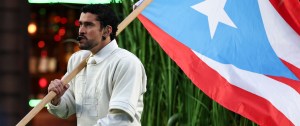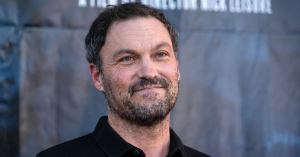Netflix has revealed that, in the course of its existence, it has received several requests from world governments to remove content in their area. The company has been opening up more and more about how what goes on its offices, and now users can read their governments’ requests to restrict certain content. The revelation adds a new layer of complication between creators and their audiences.
Most Netflix customers already know that their access to content is dictated by intellectual property rights and distribution rights, which are worked out between movie studios and Netflix. Other factors play a role too, including a complex web of business partnerships and advertising deals most viewers would prefer not to follow too closely. However, the latest wrinkle in the equation might be of interest to customers: government requests. In a press release earlier this year, Netflix revealed that some governments have requested that certain content be restricted in their borders.
Videos by PopCulture.com
Government censorship is nothing new to viewers, even in the U.S., the FCC regulates all broadcast TV and major motion pictures, at times threatening huge fines against studios or networks who depict certain things in their content. For the most part, online content has been relatively free of this kind of regulation, though the booming streaming industry is beginning to come up against more and more backlash.
Netflix has reportedly received no less than nine requests to disable certain content in certain countries since 2015, it revealed. Here is a look at what Netflix has been asked to censor and where.
‘The Bridge’ – New Zealand
New Zealand’s media regulation agency, the New Zealand Film and Video Labeling Body asked Netflix to remove the 2006 film The Bridge from their catalogue in 2015, on the grounds that it is “objectionable.” The documentary focuses on The Golden Gate Bridge in San Francisco, and the nearly two dozen suicides that happened there in that time. The footage is shocking and impactful, but New Zealand officials apparently decided it was too dangerous to have available for impressionable people to watch.
‘Night of the Living Dead’ – Germany

The German Commission for Youth Protection reportedly asked that Netflix remove the iconic horror film Night of the Living Dead in 2017. The George Romero film was first released in 1968, and is widely considered one of the biggest titles ever made in the zombie genre. It is not clear exactly why the German government wanted the film removed, but it is a famously gory, violent film.
‘Full Metal Jacket’ – Vietnam

Also in 2017, Vietnam’s government asked Netflix to remove Full Metal Jacket — a movie about the Vietnam War. Naturally, the Vietnamese Authority of Broadcasting and Electronic Information felt that this war movie was unsuitable for audiences in its country, as it depicts the Vietnam War from the American side. It also shows gruesome violence on Vietnamese soil.
‘Cooking on High,’ ‘The Legend of 420’ and ‘Disjointed’ – Singapore

Singapore’s Infocomm Media Development Authority (IMDA) asked Netflix to remove three programs about marijuana from its roster in 2018. Cooking on High, The Legend of 420 and Disjointed are all gleeful documentations about the growing, preparing and ingesting of marijuana products in parts of the U.S. where it has now been made legal, but in Singapore, marijuana is still very much illegal. Netflix complied with this request quickly, it claims.
‘The Last Temptation of Christ’ – Singapore

Singapore filed another request for removal with Netflix in 2019, asking that Martin Scorcese’s 1988 religious film The Last Temptation of Christ be taken down. The movie depicts a version of the biblical messiah’s journey, accepting his own divinity and coming to peace with his self-sacrifice. It is not exactly clear why the IMDA asked for this classic to be removed.
‘Patriot Act’ – Saudi Arabia

The government of Saudi Arabia reportedly asked Netflix to remove one episode of Hasan Minhaj’s comedy news show Patriot Act in 2019 — the episode on Saudi Arabia itself. Minhaj dedicated an entire episode of his show to examining the United States’ diplomatic relationship with Saudi Ariabia — from an American perspective, naturally. It also tackles the death of journalist Jamal Khashoggi, and the Saudi-led war in Yemen.
“We strongly support artistic freedom and removed this episode only in Saudi Arabia after we had received a valid legal request — and to comply with local law,” Netflix said of this particular removal.
‘The Last Hangover’ – Singapore
Finally, Netflix’s latest governmental removal request comes again from Singapore’s IMDA, which asked that The Last Hangover be removed in 2020. The Last Hangover is a religious parody comedy special made in Brazil and filmed in Portuguese. It depicts Jesus’ disciples waking up the morning after the Last Supper, decidedly worse for wear.
For more information on the availability of different Netflix titles in different regions, consult the company’s blog for updates.








